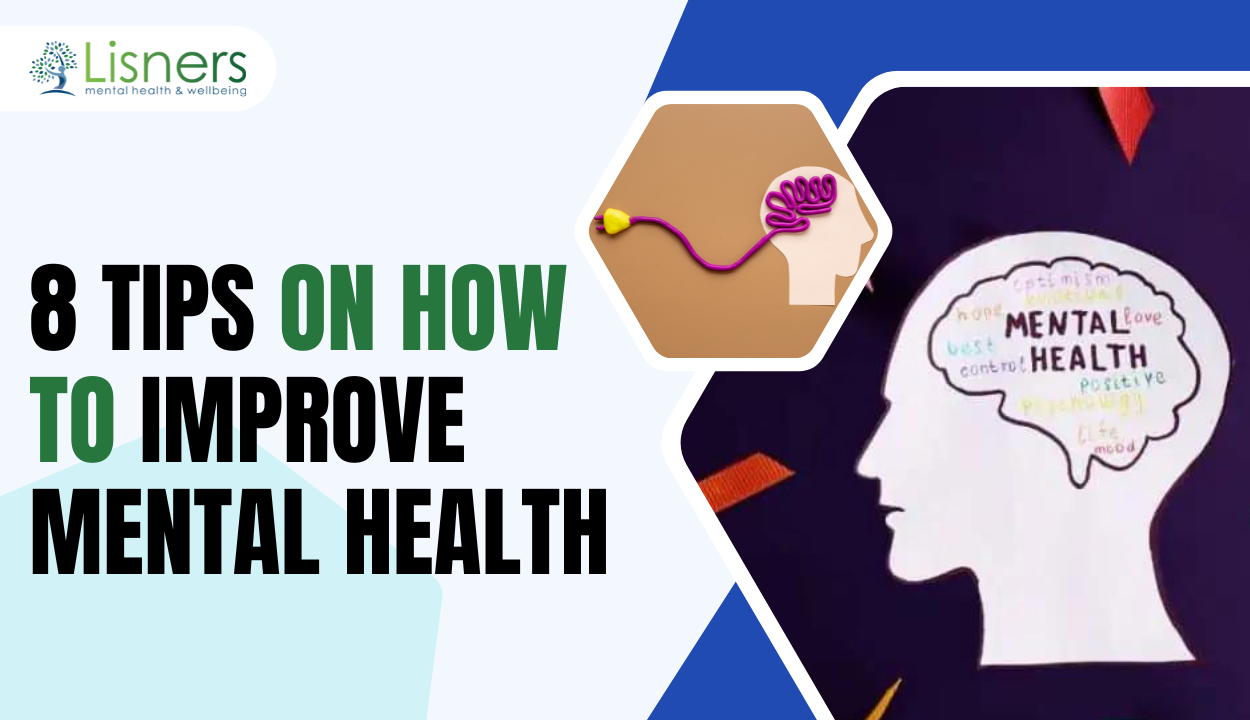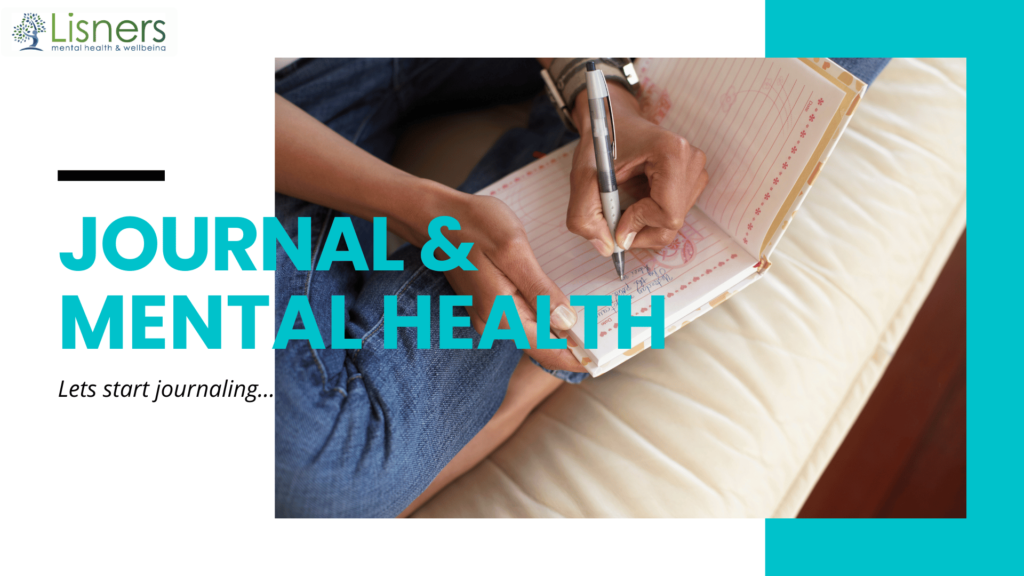Life’s difficulties and uncertainties may negatively impact Mental Health in several ways. Worry, stress, and anxiety can affect general health. While it’s important to manage Mental Health to deal with life’s ups and downs, doing so frequently requires more than just advice.
Regular activity and professional support can go a long way toward maintaining and Improving Mental Health. Setting active self-care and expert advice as a top priority can lead to a more balanced life and mental strength.
Tips to Improve Mental Health
1. Engage in Meditation and Mindfulness Practices
Meditating and practicing mindfulness are helpful strategies for reducing stress and Improving Mental Health. The goal of these activities is to focus on the present moment and accept it without judgment.
Meditating and practicing mindfulness regularly can Improve Mental Health. These practices can help you reduce negative thinking, feel more confident, and find inner peace.
2. Stay Active and Exercise Regularly
We all know that keeping a healthy weight requires frequent exercise, and you may already be aware of the heart health benefits. However, exercise also has positive effects on the brain. It improves mood, reduces stress, and boosts cognitive performance.
Physical activity releases endorphins that reduce stress. It also triggers the release of dopamine, serotonin, and noradrenaline, which regulate mood. Exercise energizes the release of serotonin, which in turn boosts overall happiness.
Exercise can help the body to regulate adrenaline levels and relieve stress. Twenty minutes of exercise a day can have a significant impact on Mental Health and stress management.
3. Eat Healthy
The brain is one of the body’s most stressed organs and requires proper nutrition to function optimally. Adequate nutrition, including vitamins, minerals, and antioxidants, leads to feelings of well-being and mental clarity. A balanced diet is rich in fruits, vegetables, whole grains, beans, lean proteins, and healthy fats.
However, processed foods are not included in this list, as they can be high in refined sugars and saturated fats. It is always advisable to minimize their intake. Drinking plenty of water and cutting down on sugar and caffeine intake can improve your mood and energy levels, leading to improved Mental Health.
4. Make a Connection with Others
Having social ties is essential for Improving Mental Health. Since humans are social beings by nature, having healthy relationships can boost happiness, lessen feelings of loneliness, and offer emotional support.
Make an effort to communicate with friends, family, or coworkers on a regular basis, whether it be via phone conversations, in-person meetings, or social media posts.
5. Set Realistic Goals
Nothing compares to the sense of achievement. Reaching a goal can help you feel more confident and valuable, whether it’s gaining that promotion you’ve been aiming for, dropping ten kg, or saving money for a down payment.
It’s critical to remember that your objectives must be reachable. Your goals should build upon your strengths, even if they are still challenging.
Additionally, confirm that you have the time and energy to dedicate to achieving the objectives you have set for yourself. If you’d like to accomplish something but aren’t sure if it’s realistic, try anything as a pastime first. Once you find that you are able to sustain it for sufficient amount of time, give it a shape in terms of commitment and goal.
6. Prioritize Sleep
Sufficient sleep is necessary to Improve Mental Health. It is the time when our entire body is repaired for all the damage that was done in the day. Inadequate sleep can result in mood swings, impatience, and elevated stress. Make sure to wake up at the same time every day and sleep in bed at the same time. This makes many tasks easy for your circadian rhythm.
Aim for 7–9 hours of sleep per night. Establishing a relaxing bedtime routine that includes reading or meditation can also encourage better sleep.
7. Keep a Journal of Gratitude
A straightforward yet effective strategy for Improving Mental Health is keeping a gratitude diary. Take a few minutes each day to make a list of everything you’re grateful for, no matter how small the things may seem.
This strategy may help you develop a more positive outlook on life by shifting your focus from what you lack to what you have. Counting your blessings can boost your mood, alleviate stress, and improve your overall health. If you want to journal digitally, you can try Lisners app as well. It is one of the best journaling apps and is very easy to use.
8. Seek Professional Help When Needed
If you are struggling with mental health issues, do not hesitate to seek professional help. Therapists, counsellors, and Mental Health professionals are qualified to offer the techniques and assistance required for managing and Improving Mental Health. Initially, you may consider connecting with family and friends but if you find it not beneficial, do not waste time and connect with a Best Psychologists in Delhi.
Getting help may be very good for health and strength rather than weakness.
Conclusion
Improving Mental Health takes effort, attention and time. Use these Tips to Improve Mental Health, such as practicing mindfulness, exercising regularly, eating well, and staying connected with others, to build a strong foundation for better mental health and well-being.
Remember, seeking professional help if needed can also make a big difference. Small, consistent changes can significantly enhance your Mental Health and help you handle life’s challenges better.
For personalized support on your Mental Health journey, try Lisners, a Mental Health and wellness app. It connects you with expert guidance and resources to Improve your Mental Health and well-being.
FAQ’s
Q.1 What are 5 ways to improve mental health?
Ans. Engage in mindfulness exercises, frequent physical workouts, a healthy diet, social interaction, and expert assistance if required.
Q.2 What is ABC in mental health?
Ans. The ABC model stands for Antecedent, Behavior, and Consequence. This model is used to understand and regulate emotional reactions and behaviors.
Q.3 What are the 4 A’s of mental health?
Ans. The four essential components of effectively preserving and improving mental health are awareness, assessment, action, and adjustment (the “4 A’s”).
Q.4 What are the basics of mental health?
Ans. Emotional wellness, stress reduction, a balanced lifestyle, healthy connections, and asking for assistance when necessary are all considered basics.








